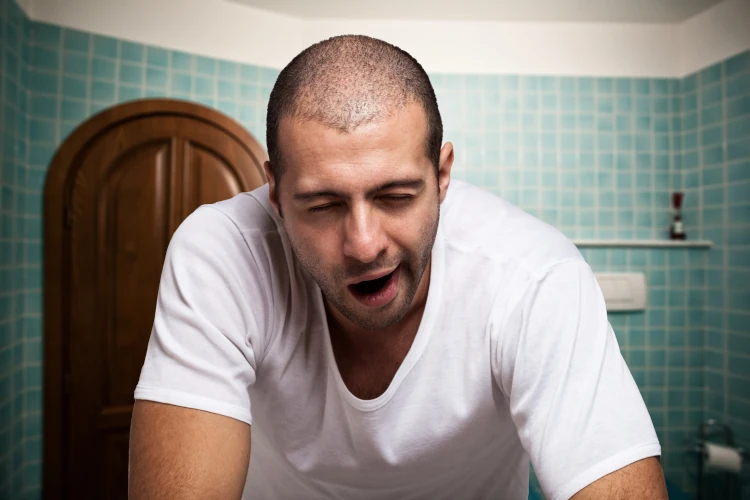
The Link Between Lack of Sleep and Hair Loss
The correlation between sleep and hair health centers on shared biological pathways that affect both processes. Poor sleep patterns may increase your risk of hair loss through stress hormone disruption, reduced cellular repair time, and compromised immune function. However, many people with occasional sleep issues never develop hair problems, while others with good sleep habits still experience hair loss from different causes.
Understanding this potential correlation helps explain why some people notice hair changes during stressful periods with poor sleep. The relationship appears bidirectional — sleep disturbances may contribute to conditions that affect hair health, while hair loss itself can create psychological stress that further disrupts sleep patterns. Multiple factors influence both sleep quality and hair health, making their connection complex rather than predictable.
- Does Lack of Sleep Cause Hair Loss?
- Sleep Deprivation and Hair Loss: What's the Connection?
- Other Conditions That May Worsen Hair Loss From Lack of Sleep
- Signs Your Hair Loss May Be Linked To Sleep Issues
- How To Improve Sleep To Prevent Hair Loss
- When To Consider Treatment for Sleep-Related Hair Loss
Does Lack of Sleep Cause Hair Loss?
Sleep serves as your body’s nightly repair center, fixing damage and restoring systems throughout your body. Hair follicles depend on this maintenance period to function properly and produce strong, healthy strands. Without adequate rest, follicles lose access to essential resources for regular growth cycles.
Growth hormones and essential proteins are released during deep sleep, directly supporting hair follicle activity. Cortisol, a key stress hormone, is known to influence hair cycling by pushing follicles prematurely into the resting (telogen) phase. The role of melatonin in hair biology is still being explored, with some evidence suggesting antioxidant benefits. Proper hormone balance becomes crucial as strands progress through their natural three-phase cycle: active growth (which can last several years), brief transition (lasting a few weeks), and resting periods (before natural shedding occurs).
Cortisol increases when you don’t get enough sleep, creating problems for hair growth. Elevated cortisol levels push hair follicles into premature resting phases, causing increased shedding and slower regrowth. Meanwhile, cellular regeneration slows when sleep patterns become disrupted since hair follicles require constant renewal that primarily occurs during rest.
Sleep Deprivation and Hair Loss: What’s the Connection?
Sleep deprivation elevates stress levels, which trigger inflammatory responses throughout your body, including scalp tissue around hair follicles. This inflammation creates a hostile environment where healthy hair growth becomes difficult.
Inflammatory markers damage the delicate structures supporting hair production when they increase due to chronic sleep loss. While poor sleep may indirectly reduce nutrient availability due to systemic stress, there is no direct evidence linking sleep deprivation to reduced scalp blood flow. Sleep deprivation also interferes with your body’s ability to absorb essential nutrients needed for hair health.
Other Conditions That May Worsen Hair Loss From Lack of Sleep
Sleep issues can create a domino effect that compounds conditions that contribute to hair loss throughout your body. Poor sleep may dysregulate immune responses, which is relevant in autoimmune conditions. However, more research is needed to confirm whether sleep loss significantly exacerbates autoimmune-related hair loss.
Thyroid conditions, hormonal imbalances, and nutritional deficiencies all worsen when combined with sleep deprivation. Poor sleep disrupts hormone production cycles that these conditions already affect, creating a cycle where multiple factors attack hair health simultaneously. Sleep loss also reduces your body’s ability to heal from the damage these conditions cause.
Healthcare providers increasingly recognize that sleep is invaluable for managing multiple health concerns affecting hair growth. Addressing sleep problems often improves outcomes for other treatments targeting hair loss conditions. Your overall wellness strategy should include a sleep assessment alongside other medical evaluations for comprehensive hair health management.
Signs Your Hair Loss May Be Linked To Sleep Issues
Several warning signs might suggest your hair loss stems from poor sleep patterns rather than genetic factors alone. You might notice increased shedding during washing or brushing, with clumps falling out rather than individual strands.
Hair regrowth becomes noticeably slower when sleep disruption affects follicle function over time. New growth appears thinner and weaker than previous hair, breaking easily during styling or gentle handling. Unlike pattern baldness, hair shedding from stress or sleep disruption often appears diffuse rather than following a predictable recession pattern.
Schedule a consultation with a healthcare provider if you experience sudden hair loss alongside sleep problems lasting more than six weeks. Medical professionals can distinguish between sleep-related hair loss and other conditions requiring different treatments. Before your appointment, be sure to document your sleep patterns and hair changes so you can give your provider accurate information.
How To Improve Sleep To Prevent Hair Loss

Good sleep hygiene creates the foundation for rest that supports hair health and follicle repair. Go to bed and wake up consistently every day, even on weekends, to regulate your body’s internal clock and hormone production cycles. Your circadian rhythm controls growth hormone release, directly affecting hair follicle activity during nighttime recovery.
To improve sleep, try limiting screen time for at least an hour before bed to avoid blue light interference with melatonin production. Create a calming environment by dimming lights, keeping your bedroom cool, and removing electronic devices that emit stimulating frequencies. Managing nighttime stress through deep breathing exercises or gentle stretching helps lower cortisol levels that otherwise interfere with hair growth cycles.
Improving sleep hygiene also stabilizes hormone levels that can help maintain healthy hair growth over time. Quality sleep allows your body to produce adequate growth hormones while keeping stress hormones within normal ranges. These changes support long-term hair health by creating optimal conditions for follicle function and cellular repair processes.
When To Consider Treatment for Sleep-Related Hair Loss
Consider professional treatment when hair thinning continues despite establishing consistent sleep patterns for three to six months. Sleep improvements alone may not reverse the damage already done to follicles, especially if other factors simultaneously contribute to your hair loss. Medical evaluation becomes essential to determine whether sleep was the primary cause or if underlying conditions require targeted treatment.
If hair loss persists despite improved sleep and health habits, consider consulting a specialist. Treatments may include topical or oral medications, platelet-rich plasma (PRP), or, in more advanced cases, surgical hair restoration. Documented procedure outcomes reveal how specialized procedures can effectively rebuild hairlines and crown areas when other treatments aren’t effective.
It’s essential to consider the costs associated with restoration options, as surgical procedure pricing structures are based on individual needs and technique selection. Comprehensive packages often include consultation, procedure, aftercare, and accommodation for international patients seeking quality results. Early intervention typically requires fewer grafts and lower costs than waiting until hair loss progresses further.


